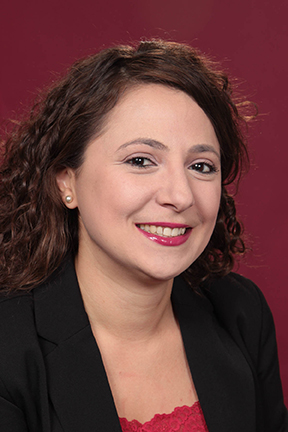Recent News
UNM Engineering Ph.D. candidate named ASCE ‘24 Outstanding Reviewer
August 11, 2025
UNM joins Brown University in national institute focused on intuitive, trustworthy AI assistants
August 6, 2025
UNM Engineering team wins ASEE best paper for work on first-year engineering course
July 17, 2025
New director will enhance interdisciplinary engineering learning opportunities
July 2, 2025
News Archives
Tsiropoulou receives NSF award for innovations in disaster response systems
September 20, 2023 - by Kim Delker

Eirini Eleni Tsiropoulou, an associate professor in the UNM Department of Electrical and Computer Engineering, was recently awarded a National Science Foundation grant for a project that addresses the area of public safety systems, especially during and after disasters where victims, first responders and emergency control centers must coordinate efforts for effective rescue missions.
Tsiropoulou, whose research focuses on game theory, is leading the $300,000, three-year project called SOTERIA: Satisfaction and Risk-aware Dynamic Resource Orchestration in Public Safety Systems, which aims to revolutionize the way disasters are managed and resources are allocated by introducing cutting-edge behavioral decision-making models and bio-inspired disaster response networks.
Tsiropoulou said that one of the primary challenges addressed by the SOTERIA project is the limited understanding of how humans make decisions during disasters, especially when dealing with uncertain resource availability. Current models in this field are mostly qualitative, lacking the necessary depth to account for complex risk-aware decision-making.
“This project introduces a novel behavioral decision-making model that captures these complexities, giving rise to a new field in game theory known as Satisfaction Games," she said.
She said that a key aspect of the project is the introduction of the bio-inspired disaster response network (DRN), which draws inspiration from the inherent robustness of biological networks found in living organisms.
“The DRN supports victims' participation in reliable crowdsourcing, ensuring the accuracy and quality of collected information through an inventive Bayesian Prospect Theory,” she said.
Tsiropoulou said SOTERIA’s outcomes could transform the field of disaster response.
“By integrating efficient resource management techniques with human behavior considerations, the project aims to enhance victims' satisfaction instead of merely maximizing utility,” she said. “The proposed reinforcement learning techniques will empower victims to make informed decisions in real time, even when faced with incomplete information about resource availability.”
The SOTERIA project not only pioneers novel methodologies but also has the potential to save lives and critical infrastructures during and after disasters.
“As disasters continue to pose challenges to communities worldwide, the SOTERIA project promises to reshape disaster response systems and contribute significantly to the advancement of theories such as Prospect Theory, Tragedy of the Commons and Satisfaction Games," she said.
Tsiropoulou said that this project is especially meaningful to her because she has a chance to use her expertise “push the boundaries of knowledge for the greater good.”
